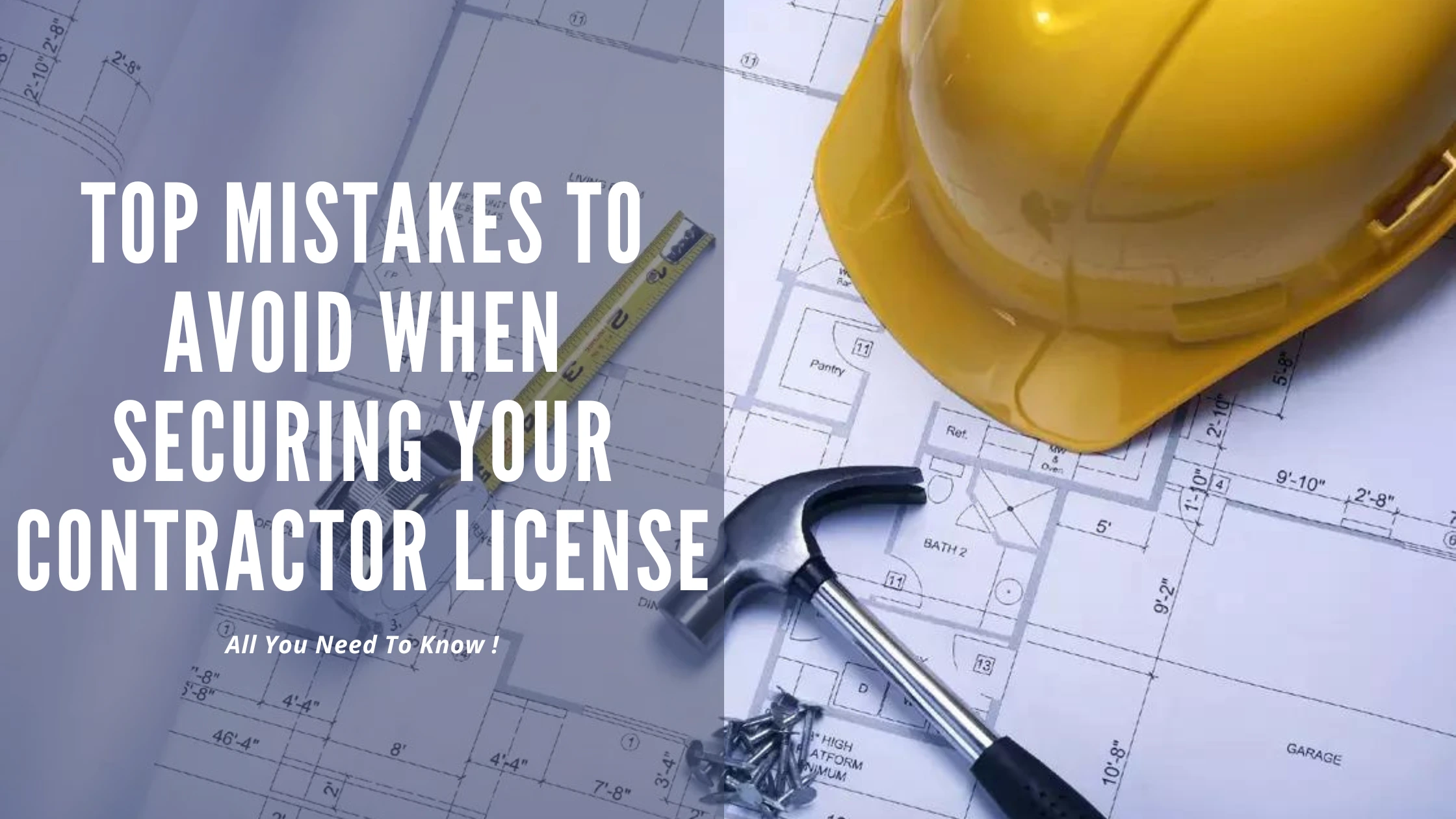Top Mistakes to Avoid When Securing Your Contractor License

6 Mistakes to Avoid if You Want to Become a Licensed Contractor
If you want to become a contractor, you need to know the right way to go about getting your contractor's license. Many prospective contractors make mistakes before and after starting their careers. Understanding the most common mistakes people tend to make can help you avoid them and start on your path to a successful future.
1. Not Complying With the Law
One of the biggest mistakes contractors make with licensing is failing to get a license at all. If you engage in contracting without a license and work in a state in which contractors are required to be licensed, you risk significant fines and penalties, and you might not be able to recover compensation for any projects on which you have worked but haven't been paid.
Before you start a contracting business, review the licensing laws in your state to learn about your requirements. If you are required to be licensed, take appropriate steps to meet each requirement and apply for your license at the earliest opportunity.
2. Failing to Get the Right Insurance and Bond
States that require contractor licensing typically require candidates to have the right types of insurance and a contractor license bond. The insurance should be in your company's name instead of personally covering you. Contracting companies typically need the following types of insurance:
• Commercial general liability insurance, which protects you against liability for incidents occurring on the job site
• Workers' compensation insurance, required by law in most states to provide employees with benefits if they are hurt on the job
A contractor's bond is not insurance but is often required as a condition of getting your contractor's license. If you break the law or fail to fulfill your contracts, a customer or the state can file a claim against your bond. Unlike insurance, your bond won't protect you against liability, and you'll instead need to take responsibility for repaying the bond company for any amounts paid on your behalf.
3. Applying for the Wrong Type of License
Many states segment contractors' licenses according to the types of work the licensees perform. For example, separate licenses might be issued for residential contractors, commercial contractors, and specialty contractors such as HVAC contractors, electrical contractors, plumbing contractors, and others.
If you apply for the wrong type of license and don't have the experience required, you run the risk of being denied and having to start the process over. This would likely involve having to submit a new license application fee.
When you review your state's licensing requirements for contractors, note the various types of licenses that are issued and the qualifications needed for each one. Make sure you know which type of license you are qualified for, and apply for the right one.
4. Missing Requirements Before Applying for a License
Contractors must meet any number of requirements based on the state in which they want to perform work. If you miss a requirement, your application will be denied.
The following are some common steps to becoming a licensed contractor:
• Obtain the right education (degree or trade school).
• Complete the specific training requirements or apprenticeship.
• Study for and pass a state construction contractor's exam, and pay the exam fee.
• Choose an appropriate business structure, and register your business with the Secretary of State's office in your state.
• Apply for a Federal Employer Identification Number (FEIN) and a state tax ID.
• Open a business bank account in the name of your company.
• Create a business plan.
• Obtain commercial liability and workers' compensation insurance.
• Purchase a contractor's license bond.
• Complete a contractor's license application, and submit it together with supporting documents and the application fee.
• Don't begin working as a contractor until your license application has been approved.
Familiarize yourself with all the requirements you need to meet, and use a checklist for easy reference so that you can ensure you don't miss anything.
5. Not Having Your Paperwork in Order
Applying to get a contractor's license will require you to submit supporting documents with your application, including:
• Information about your business
• Business registration documents
• Documentation of your training or education
• Certificates of insurance
• Bond form
• Tax documents
To save time and hassle, make sure you have all these documents when you apply for your license. Once you receive your license, it's still important to keep your paperwork organized to help your business flourish. Establish a method of storing and organizing contract information, invoices, communication with suppliers and subcontractors, bond information, insurance documents, payroll tax information, and others to ensure you remain compliant and operate efficiently.
6. Failing to Invest in Your License
Some contractors receive their licenses and think their journey is at an end. However, you must invest in your license to maintain it. Contractors' licenses are not permanent; they expire. To make sure you can renew your license when it's time, keep current with regulatory and statutory changes that apply to the construction industry to avoid violating them.
You should also strive to build a good history with your bond company. By staying current with the law and always complying with your legal and contractual obligations, you can minimize your risk of bond claims. Like your contractor's license, your bond will need to be renewed. Running your business in an aboveboard manner can help to keep your record with the bond company trouble-free, so you can secure the best bond premium rates at renewal. Since your bond is a licensing requirement, you'll also need to make sure you can get approved for a bond renewal to stay in business.
Investing in your license is a critical component of investing in your business's success. Following the law, avoiding bond claims, and fulfilling your contractual duties help not only to minimize liability risks but also to build a thriving construction contracting business. If you take the time to research the requirements for obtaining the correct type of contractor's license, apply for the right license, and meet all your obligations, you can obtain your license and work to build a strong, thriving, well-regarded business as a licensed contractor.
